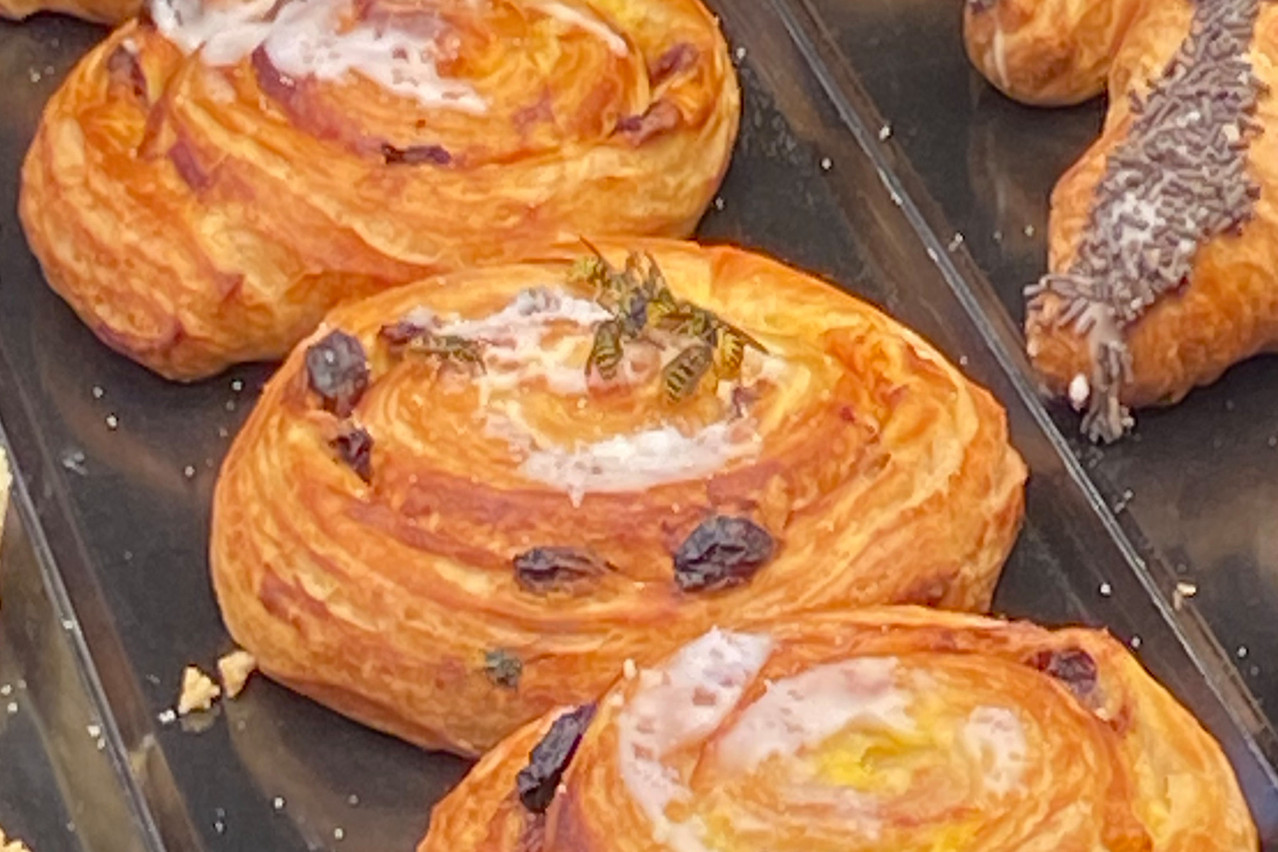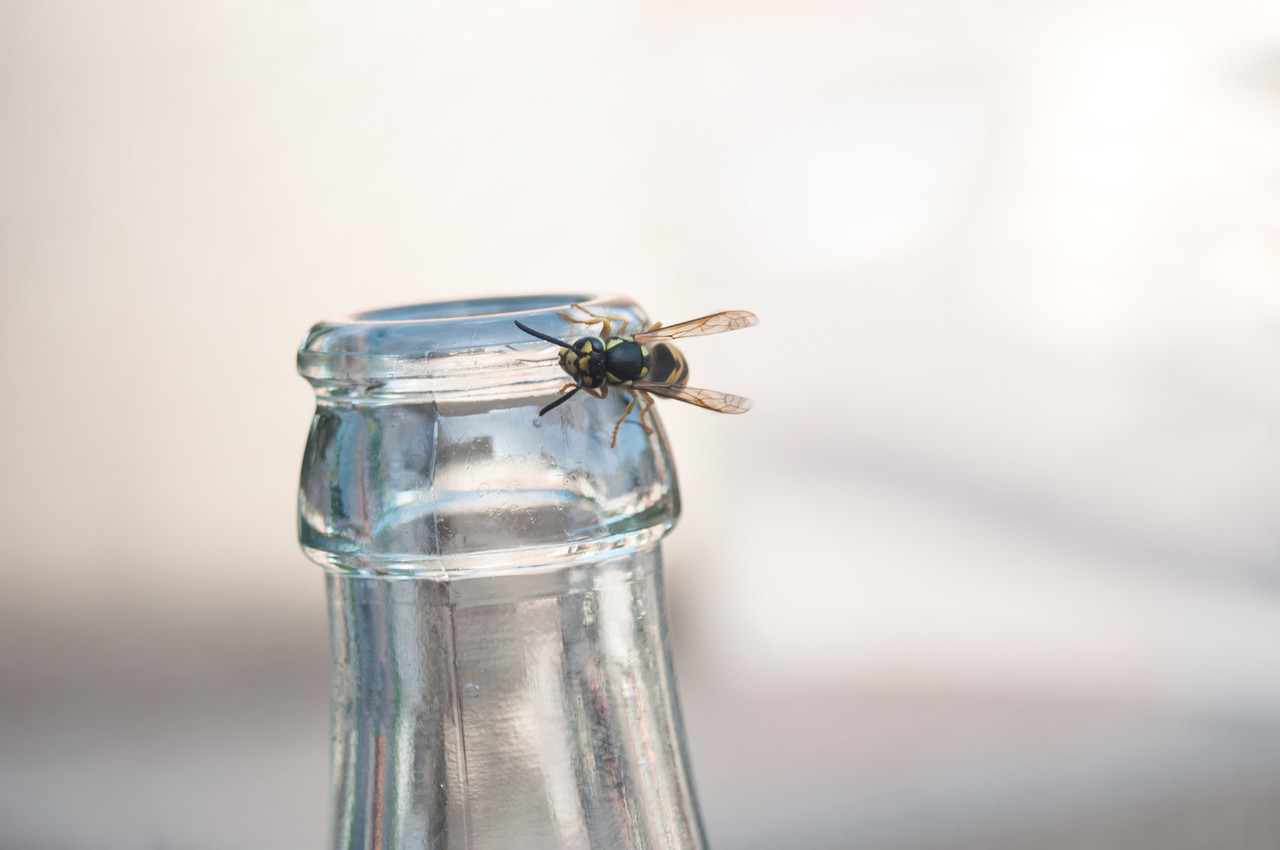The erratic flight pattern of wasps around the terrace table makes afterwork drinks less than relaxing, especially since they always manage to land in your pricey drink. While you may be asking yourself what the relevant authorities are waiting for to take out the big guns, there are some things to consider, and some ways to deal with wasps.
It’s not you, it’s your food
Wasps are attracted by sweet smells and bright colours, explains environmental NGO natur&emwëlt . So perfumes, brightly coloured clothes, but also most foods, leftovers, or even overripe fruit in the garden will attract them.
Wasps generally speaking don’t care about humans much and don’t sting unless provoked. “If you do nothing, the wasp might just have a bit of your drink or food, and then it will leave,” pest control expert Eddy Boland tells Delano. So, while it’s not appealing to share a meal with a bug, it’s better to just co-exist with them rather than angrily swipe at them and risk being stung.
Never put the traps where you don’t want them.
Instead, distract them with traps or other food sources. Natur&ëmwelt recommends not using wasp traps as they result in a cruel death and only attract older wasps. But if you must, make sure to place the traps away from where you don’t want them. So if you’re having lunch on your terrace, don’t place the trap on your table or next to it, but further away so the wasps don’t accidentally end up being even more attracted to your food and drinks. “It’s a mistake that many people make,” explains Boland, who runs RHS Pest Control in Luxembourg. Just “never put the traps where you don’t want them”.
Alternatively, you can set up mosquito nets or use essential oils with tea tree oil or cloves for instance, as these serve as a repellent too, says natur&emwëlt.
Why are there so many wasps?
“Everything is determined during the spring season,” according to Boland. If the weather is mild in spring and grows increasingly hot until the summer, more nests will develop. Continued cold weather is usually responsible for eliminating at least some nests, but with climate change “nature doesn’t have the same effect on them” and instead favours this type of bug.
Last year, with a cold and wet spring and summer, there were less wasps, but “this year, we once again have a lot,” confirms Boland. In his thirty-five years of experience, he has noted a stark increase in wasp populations. The lack of continued minus temperatures in the winter also allows the insect to thrive.
Residents could continue to be bothered until mid-September if not later, Boland warns. Only once temperatures go down to around 15ºC during the day and around 5ºC at night will they naturally start leaving their nests.

Raisins, chocolate chips or wasps--there are so many options to choose from. Maison Moderne
When should you call pest control?
Wasps, regardless of their reputation, are there for a reason. They pollinate like bees, as well as hunt down other bugs that cause damage to gardens and fields.
“We don’t kill wasps for fun, wasps are useful unless they endanger human health,” Boland explains. Though the number of interventions has starkly increased--his team of six men intervene in about 25 sites a day during the high season--not all interventions can be justified.
We don’t kill wasps for fun, wasps are useful unless they endanger human health.
If there is a threat to humans--because a person is allergic for example--or if a nest blocks access to certain locations in the house or building, the exterminator will inject a dry powder directly into the nest. That way, any wasp that enters the nest within the following week and comes in contact with the powder will die.
It should also be noted that firemen don’t take care of wasps anymore, unless it’s at a highly risky place (like playgrounds).
If you do end up stung, Boland recommends rubbing some ointment on it and keeping an eye out for any swelling or nausea. Natur&emwëlt also recommends binding a bit of raw onion where the wasp stung, which is guaranteed to keep wasps (and humans) away.
But, if you want to make peace with wasps--as they are growing in numbers--you can visit on 25 August and learn everything there is to know about them.
